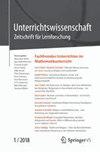为数字技术教学做好准备:教师教育和专业发展的基于场景的自我评估
Q2 Social Sciences
引用次数: 0
摘要
教师的技术相关技能通常通过自我评估来衡量。然而,自我评估经常被批评为不准确和有偏见。基于场景的自我评估是一种很有前途的方法,可以提高自我评估的准确性和减少偏见。本研究以552名在职教师和实习教师为研究对象,对基于场景的自我评估工具In进行了验证。K19 +教师。该工具能够对教师的工具性和关键性数字技能以及与技术相关的教学技能进行基于场景的自我评估。在验证性因子分析中,我们表明该工具具有足够的因子效度。为了测试仪器的预测有效性,我们检查了仪器与教学中技术使用频率和教师发起的涉及数字技术的学生学习活动的关系。结构方程模型的结果表明,工具性数字技能和技术相关的教学技能与教学中使用数字技术的频率呈正相关,而关键数字技能与教学中使用数字技术的频率呈正相关。在学生学习活动的启动方面,工具性和批判性数字技能与启动学生学习活动的关系包括较低的认知投入。与技术相关的教学技能与发起学习活动有关,这表明更高的认知投入。结果表明,工具性和批判性数字技能在课堂上基本使用数字技术方面发挥着重要作用,而与技术相关的教学技能在更复杂的数字技术使用场景中至关重要。这种模式的发现支持预测的有效性。K19 +仪器。本文章由计算机程序翻译,如有差异,请以英文原文为准。
Getting ready for teaching with digital technologies: Scenario-based self-assessment in teacher education and professional development
Abstract Teachers’ technology-related skills are often measured with self-assessments. However, self-assessments are often criticised for being inaccurate and biased. Scenario-based self-assessment is a promising approach to make self-assessment more accurate and less biased. In this study with N = 552 inservice and student teachers, we validated a scenario-based self-assessment instrument IN.K19 + for teachers. The instrument enables scenario-based self-assessment of instrumental and critical digital skills and technology-related teaching skills for teachers. In a confirmatory factor analysis, we show that the instrument has sufficient factorial validity. To test the predictive validity of the instrument, we examined the instruments’ relationship to the frequency of technology use during teaching and teacher-initiated student learning activities involving digital technologies. Results from structural equation modelling show that instrumental digital skills and technology-related teaching skills are positively related to the frequency of digital technology use during teaching, while critical digital skills are not. In terms of the initiation of student learning activities, instrumental and critical digital skills show relationships with initiating student learning activities that include lower cognitive engagement. Technology-related teaching skills are related to initiating learning activities that indicate higher cognitive engagement. The results show that instrumental and critical digital skills play an important role with respect to the basic use of digital technologies in the classroom, while technology-related teaching skills turn out to be crucial for more complex scenarios of digital technology use. This pattern of findings supports the predictive validity of the IN.K19 + instrument.
求助全文
通过发布文献求助,成功后即可免费获取论文全文。
去求助
来源期刊

Unterrichtswissenschaft
Social Sciences-Education
CiteScore
2.10
自引率
0.00%
发文量
19
期刊介绍:
Unterrichtswissenschaft – Zeitschrift für Lernforschung ("Journal for Teaching and Learning") publishes research on learning and instruction in pre-school, school, higher education, occupational settings and various informal learning environments. The journal presents theoretical approaches and empirical research findings to facilitate the advancement of further research and evidence-based practice in education. Unterrichtswissenschaft is therefore indispensable for researchers and students in the fields of transfer research, teaching quality and didactics.
Unterrichtswissenschaft publishes original empirical studies, reviews, and theoretical articles in German and English. All articles are subject to double-blind peer review in order to meet the highest quality standards. Every issue contains a topical focus as well as unsolicited submissions, which are complemented by hot topic contributions.
The journal has an international audience with a special focus on German-speaking countries. It is one of the three most-cited German journals in educational research as identified by a Cited Reference Search in Web of Science, PsychInfo, and Harzing''s Publish or Perish (1999-2010). About 50 % of the references in Web of Science can be found in English-language publications.
 求助内容:
求助内容: 应助结果提醒方式:
应助结果提醒方式:


